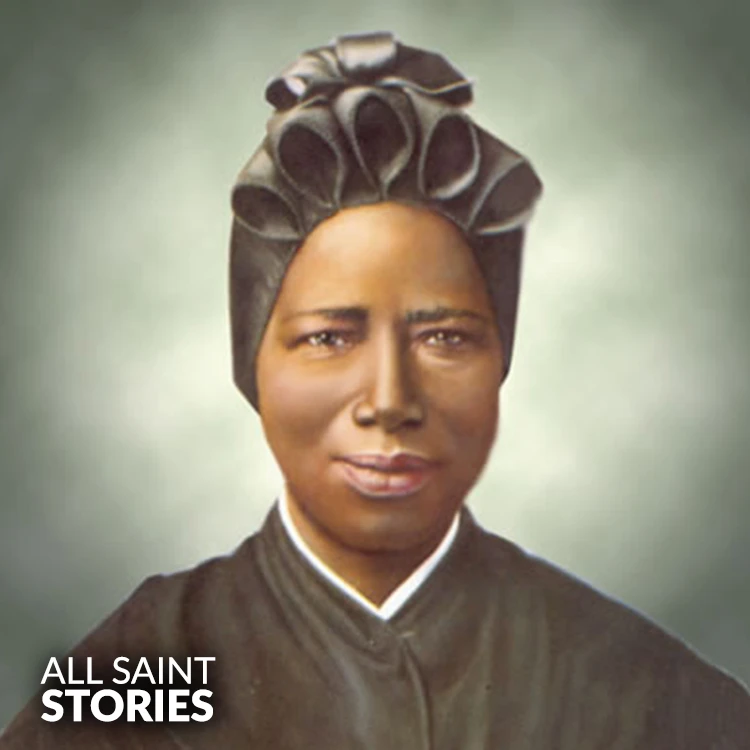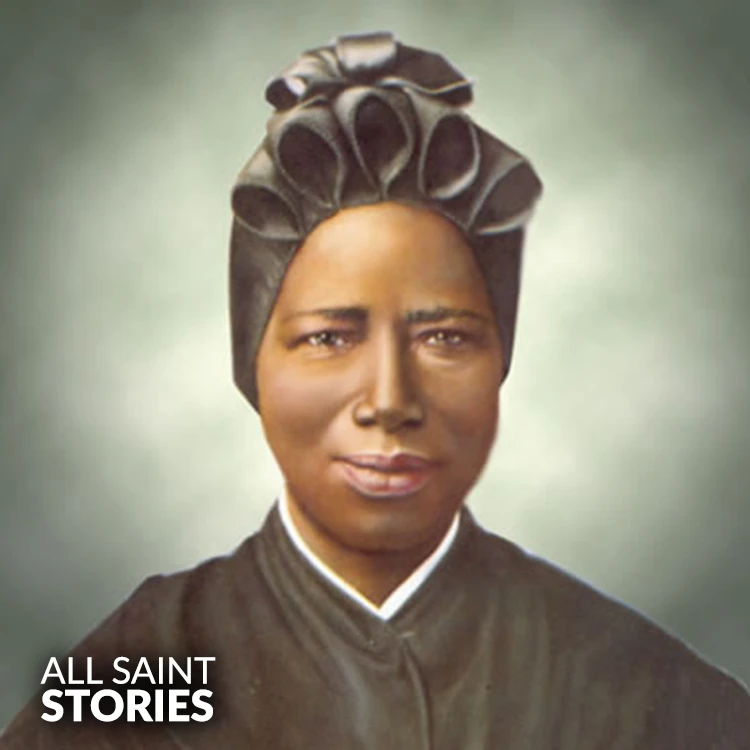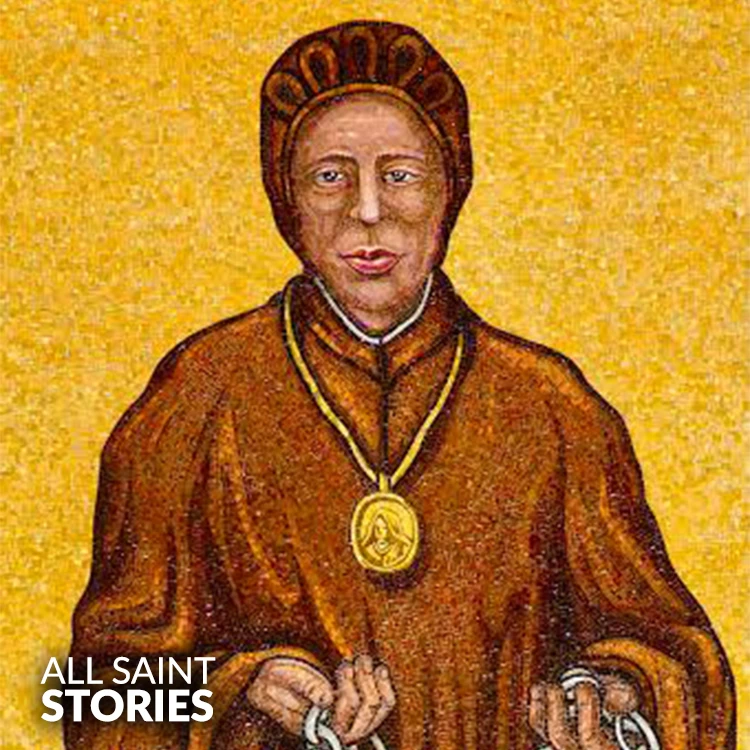St. Josephine Bakhita, you bore the wounds of slavery and never lost faith in God's love. Intercede for those who are oppressed, abused, or trafficked today. Help us to seek freedom in Christ and to live with compassion for the suffering. Amen.
ST. JOSEPHINE BAKHITA
ST. JOSEPHINE BAKHITA

St. Josephine Bakhita was a Sudanese slave who became a Catholic nun in Italy. Her life story of suffering and forgiveness made her a symbol of hope and human dignity.
St. Josephine Bakhita was born around 1869 in Darfur, Sudan. Her early life was shattered when she was kidnapped by Arab slave traders at about the age of 7. Given the name "Bakhita," meaning "fortunate," by her captors, she was sold and resold in the slave markets of Sudan more than a dozen times. During her captivity, she endured brutal beatings, humiliation, and torture, including being forcibly tattooed and scarred.
Eventually, she was bought by an Italian consul who took her to Italy, where she experienced kindness for the first time. There, she came into the care of the Canossian Sisters in Venice. Through their love and instruction, she came to learn about Christ. Deeply moved by the message of Christianity, she sought baptism and was baptized Josephine Margaret Bakhita in 1890.
When her former owner tried to reclaim her, the Italian courts ruled that slavery was illegal in Italy, and she was declared free. Choosing a life of religious devotion, she entered the Canossian Sisters and took her final vows in 1896. She spent the next 50 years in the convent at Schio, serving as a cook, sacristan, and porter. Her humility, deep prayer life, and radiant joy attracted many people to her.
Despite her painful past, Bakhita never expressed hatred toward her captors. Instead, she forgave them and testified to the transforming power of God’s love. In her later years, as her health failed, she would relive her painful past but always responded with gratitude for her eventual freedom in Christ.
St. Josephine Bakhita died on February 8, 1947. Her holiness was recognized far and wide, and Pope John Paul II canonized her in 2000. Today, she is the patron saint of Sudan and a symbol of hope for victims of slavery and human trafficking. Her feast day, February 8, is also the International Day of Prayer and Awareness Against Human Trafficking.
Video Not Found
The information on this website is compiled from various trusted sources. While we aim for accuracy, some details may be incomplete or contain discrepancies.
If you notice any errors or have additional information about this saint, please use the form on the left to share your suggestions. Your input helps us improve and maintain reliable content for everyone.
All submissions are reviewed carefully, and your personal details will remain confidential. Thank you for contributing to the accuracy and value of this resource.
Credits & Acknowledgments
- Anudina Visudhar (Malayalam) – Life of Saints for Everyday
by Msgr. Thomas Moothedan, M.A., D.D. - Saint Companions for Each Day
by A. J. M. Mausolfe & J. K. Mausolfe - US Catholic (Faith in Real Life) – Informational articles
- Wikipedia – General reference content and images
- Anastpaul.com – Saint images and reflections
- Pravachaka Sabdam (Malayalam) – Saint-related content and insights
We sincerely thank these authors and platforms for their valuable contributions. If we have unintentionally missed any attribution, please notify us, and we will make the correction promptly.
If you have any suggestion about ST. JOSEPHINE BAKHITA
Your suggestion will help improve the information about this saint. Your details will not be disclosed anywhere.
© 2026 Copyright @ www.allsaintstories.com






 English
English
 Italian
Italian
 French
French
 Spanish
Spanish
 Malayalam
Malayalam
 Russian
Russian
 Korean
Korean
 Sinhala
Sinhala
 Japanese
Japanese
 Arabic
Arabic
 Portuguese
Portuguese
 Bantu
Bantu
 Greek
Greek
 German
German
 Dutch
Dutch
 Filipino
Filipino